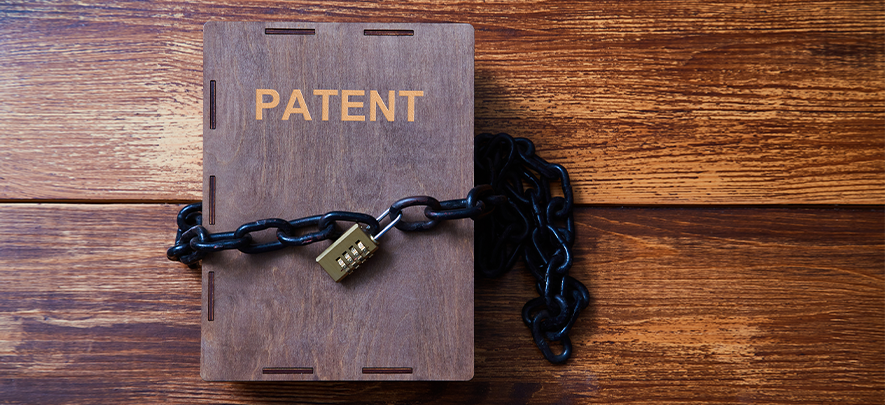What are the 3 types of patents?

Legal & Compliance
226 week ago — 8 min read
Not all inventions are patentable under the Indian Patents Act. The act establishes the guidelines for what can be considered a different, effective, obvious, or simple invention. In addition, such government guidelines as unfounded inventions or claims to something which is obviously contrary to the public good or in a primary or purposeful application could apply to the invention. The commercial use of the invention cannot violate public order or morality or cause serious harm to humans or other animals. Patents can adversely affect plants, health or environmental protection or be mere disclosure of scientific recommendations or abstract theory formulation, or discovery of living or non-living or non-living natural substances, etc.
To quote a recent example, Philips has filed a patent infringement case against Xiaomi in India. It has approached the Delhi High Court to restrain Xiaomi from assembling and selling phones through any online eCommerce platforms and retail chains in India. After hearing the appeal from Philips, the High Court asked Xiaomi’s Indian subsidiary to maintain ₹1,000 crore bank balance on or before December 2, 2020.
Patent types in India
In India, patents can, depending on their priority argument, be categorised into three groups,
-
Ordinary patent application
-
Conventional patent application
-
Patent Co-operation Treaty (PCT) national phase patent application
Ordinary patent application
Ordinary patent requests with provisional or full specifications can be filed in India. Furthermore, the fact that it does not claim a preference from any other application is distinctive from other patents. The specification is a declaration of technical disclosure allowing the normal qualified person to carry out an invention. Moreover, it starts with the name of the invention and includes the invention area, state of the art, invention purpose, overview, comprehensive invention description, sketches, and statements, along with a summary of the invention. The abstract contains a short description. Further, the full specification must preceded within 12 months by a provisional submission.
Convention patent application
In India, the priority of a convention application shall be asserted and shall be filed with a complete specification within 12 months from the priority date.
PCT national phase patent application
PCT’s national step patent request must lodge with India in accordance with the complete english requirements after a PCT application that file at WIPO and within 31 months of the priority date. In the course of 31 months from the date of earliest priority, or within 3 months after a request made by the controller, the English translation of the priority documents should be filed. Further, if WIPO does not issue PCT/IB/304, the certified copy must be filed with priorities within 31 months of the earliest priority date.
Also read: Patents: Advantages & obstructions
Indian patent offices
There are four patent offices in India, in New Delhi, Mumbai, Chennai, and Kolkata and the application must be submitted depending on territorial jurisdiction and where the applicant is located. Additionally, the application shall be submitted before a patent office in which the agent/attorney for the applicant resides in the territorial jurisdiction of the international applicant is present.
Standard patent application in India
For filing ordinary patent applications in India, the necessary requirements are as follows:
- Patent applicant’s name, address, specification, and nationality
- Additionally, patent inventors’ name, address, and nationality
- Provisional description, statements, abstract, sketches, or complete specifications.
Some ordinary patent filing requisites
- Statement of inventory, or complete requirements, within 1 month of application filing.
- Proof of right of inventor in writing (assignment deed, work contract) or otherwise within six months of the application filing,
- Information of all the relevant international applications in any country outside India within 6 months following the application being filing.
Notarisation is not mandatory. It should file as soon as possible to ensure that the request can release as early as possible and must receive by the patent office within 3 months of the request.
Also read: 10 things entrepreneurs should know about patents
Indian patent solicitor
The following steps are included in the proceedings in India:
- Patent request filing
- Publication at or after 18 months from the filing date, of a patent application
- An evaluation request within 48 months of the date of request or priority, whichever is earlier
- Issuance as first review report with all the opposition to the granting of a patent for enforcement within 12 months of its issuance
- Additionally, response to the review report and enforcement
- Release of further exam reports and all objections that compiles with to the examiner’s satisfaction
- Responding to further reports on examinations before all complaints or objections have been met.
- Examiner interview
- Acceptance on or before the final acceptance date of the patent application, i.e., 12 months after the first review report
- Patent office award of letters patent document within 7 days of receipt of application
Patent and renovation period
The patent term in India shall be twenty years after the date on which ordinary and traditional patent; and national PCT patent applications shall fill in India or twenty years from the period on which the international PCT application has finish. Further, the patent renewal fee shall be for the third year after the grant until the twentieth year, and payable before the expiry of the respective years.
Additionally, the patent shall revoke if a renewal fee has not charge up in the particular time, and the patent owner cannot take any action against a violation by anyone during the period between the revocation of a patent until it is restored.
Also read: A guide to filing a provisional patent specification in India
Official fee discount
India shall permit a discount on the official fee for both natural and small bodies. The whole of a discount tax shall have a charge at the time of registration of assignment. This can be when the patent application will allocate to the not-natural individual (a small body or other than a small body).
Also read: How to file a patent in India?
To explore business opportunities, link with us by clicking on the 'Connect' button on our eBiz Card.
Image source: shutterstock.com
Disclaimer: The views and opinions expressed in this article are those of the author and do not necessarily reflect the views, official policy or position of GlobalLinker.
Posted by
Vakilsearch StaffGreetings! We would love to work with you and your company. We look forward to connecting with business houses and MSME's.
View Vakilsearch 's profile
Other articles written by Vakilsearch Staff
Know About the 4 Types of Partnership Firms
40 week ago
Most read this week
Trending













Comments
Share this content
Please login or Register to join the discussion